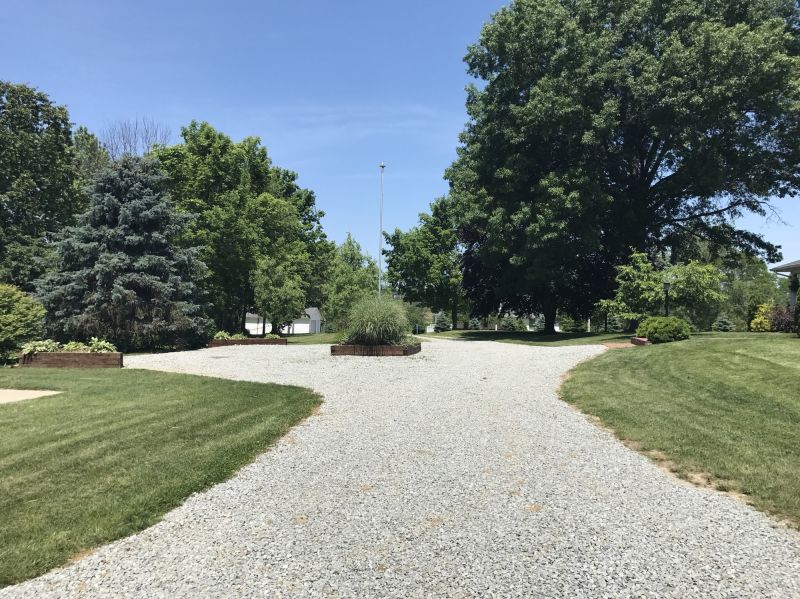Leading Driveway Installation Products To Transform Your Space
Choose from top-rated supplies designed to improve functionality and appearance for any driveway renovation.
 When considering products for driveway installations, it is essential to evaluate a variety of materials and accessories that contribute to a durable and functional surface. The choice of products can significantly influence the longevity, appearance, and maintenance of a driveway. From foundational base materials to surface coatings and decorative elements, selecting the right combination ensures a driveway that meets both aesthetic and practical needs.
When considering products for driveway installations, it is essential to evaluate a variety of materials and accessories that contribute to a durable and functional surface. The choice of products can significantly influence the longevity, appearance, and maintenance of a driveway. From foundational base materials to surface coatings and decorative elements, selecting the right combination ensures a driveway that meets both aesthetic and practical needs.
Top Overall Option
Modular Interlocking Paver System
A modular interlocking paver system offers a versatile and adaptable solution for driveway surfaces. These systems are designed for easy installation, allowing for customization in pattern and color. They provide good drainage, flexibility in repairs, and a range of design options to suit different aesthetic preferences.
Types of Products For Driveway Installations
Asphalt Mix
A commonly used material for driveways, asphalt offers a smooth surface and quick installation process.
Concrete Pavers
Precast concrete pavers are durable and come in various shapes and colors for decorative options.
Interlocking Pavers
Interlocking pavers provide a flexible and easy-to-repair surface with customizable patterns.
Gravel and Crushed Stone
A cost-effective option that allows for good drainage and natural appearance.
Stamped Concrete
Concrete that is textured and colored to mimic stone, brick, or other materials for decorative appeal.
Sealants and Coatings
Products used to protect and enhance the surface, extending the lifespan of the driveway.
Edging and Borders
Materials that define the driveway perimeter and prevent shifting of gravel or pavers.
Drainage Solutions
Grates, pipes, and other accessories designed to manage water runoff effectively.
Driveway Lighting
Lighting fixtures that improve safety and aesthetics during nighttime use.
Geotextile Fabrics
Materials placed beneath the driveway to stabilize the base and prevent weed growth.
Surface Sealers
Protective coatings that seal the surface against stains, water penetration, and wear.
Edge Restraints
Support barriers that keep pavers or gravel in place and maintain driveway shape.
Driveway Marking Paints
Paints used for lane markings, parking guides, and safety indicators.
Concrete Reinforcements
Rebar and mesh used within concrete to improve structural integrity.
Heating Cables
Electric cables installed beneath the surface to melt snow and ice.
Landscape Edging
Decorative and functional borders that define driveway boundaries and garden areas.
Popular Choices
A widely used surface option appreciated for its quick installation and smooth finish.
Popular for their durability and variety of design options.
Favored for affordability and natural aesthetics, with good drainage properties.
Chosen for decorative appeal and customization possibilities.
Valued for ease of repair and pattern versatility.
Commonly used to protect surfaces and maintain appearance.
Popular for managing water runoff and preventing pooling.
Increasingly favored for safety and aesthetic enhancement.
Often selected to improve base stability and weed control.
Commonly used to define driveway borders and prevent shifting.
Popular for extending the lifespan of asphalt and concrete surfaces.
Chosen for aesthetic enhancement and defining driveway edges.
Increasingly installed in colder regions for winter maintenance.
Frequently used to highlight driveway features and improve visibility.
Commonly added within concrete to improve strength.
Popular for creating clean, defined boundaries.
Helpful for organizing parking spaces and preventing overextension.
Durability and ease of installation are key factors when selecting driveway products. Common options include different types of paving materials such as asphalt, concrete, and interlocking pavers. Each material offers unique advantages and considerations, including load-bearing capacity, weather resistance, and maintenance requirements. Proper preparation and the use of quality accessories like sealants, edging, and drainage solutions can enhance the performance and lifespan of the driveway.
In addition to the primary materials, accessories such as driveway lighting, marking paints, and decorative borders can improve safety and visual appeal. It's also important to consider the climate and usage patterns of the driveway area to choose products that will withstand local conditions. Regular maintenance products like sealants and cleaning solutions are vital for preserving the surface over time.
Ultimately, selecting products for driveway installation involves balancing cost, durability, appearance, and ease of installation. Consulting with professionals or thoroughly researching product specifications can help ensure that the chosen components will work harmoniously to create a driveway that is both functional and attractive for years to come.
Key Buying Considerations
- Assess the climate and weather conditions of your area to select appropriate materials.
- Determine the expected load and traffic volume to choose a suitable surface type.
- Consider the maintenance requirements and longevity of different products.
- Evaluate the aesthetic preferences and how the driveway design complements your property.
- Check the compatibility of accessories like drainage systems and lighting with your chosen surface.
- Review installation complexity and whether professional help is needed.
- Factor in budget constraints while balancing quality and durability.
- Ensure the selected products meet local building codes and regulations.
- Think about future expansion or modifications and select adaptable products.
- Investigate the availability of replacement parts or repair options for the chosen materials.
- Consider environmental factors that may affect material performance, such as freeze-thaw cycles.
- Look into warranties or guarantees offered by suppliers or manufacturers.
- Assess the ease of cleaning and upkeep for different surface types.
- Determine if additional features like heating cables or decorative elements are desired.
- Prioritize safety features such as slip resistance and proper lighting.
This content includes affiliate links for informational purposes. We may earn a commission if you make a purchase through these links, at no additional cost to you.
